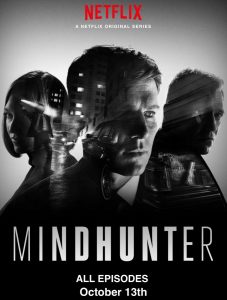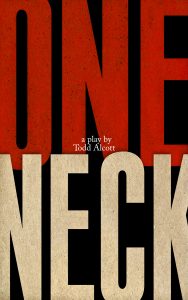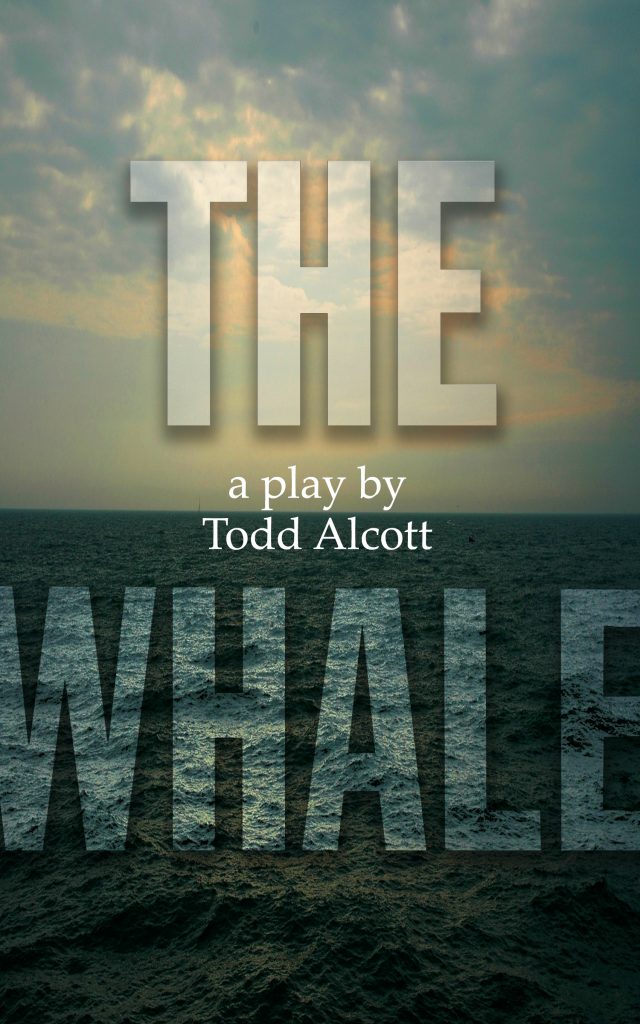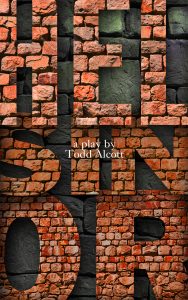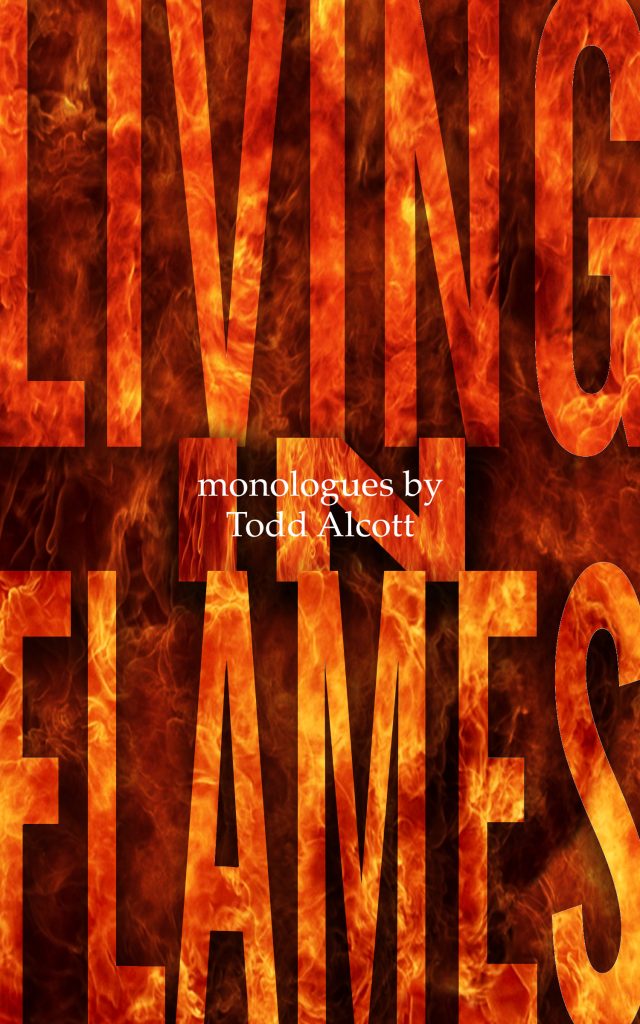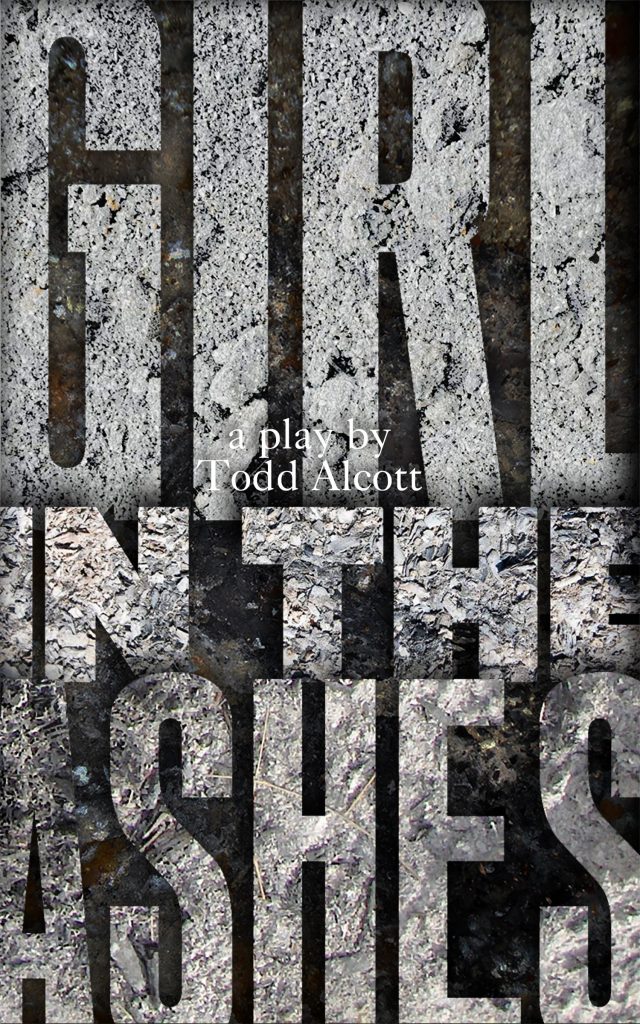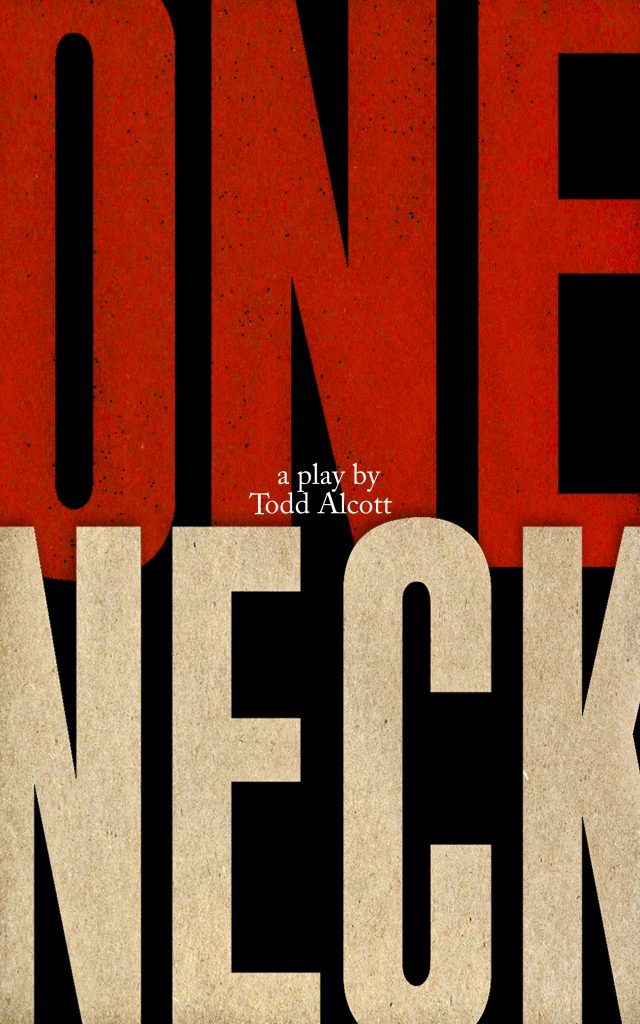Mindhunter vs One Neck
Watching the new Netflix show Mindhunter, I am reminded how the concept of “serial murder” was brand spanking new when I was a teenager, that killers like Ted Bundy, John Wayne Gacy, Jeffrey Dahmer and the rest were a terrifying new phenomenon to law-enforcement agencies, who had no vocabulary or protocol to deal with them. A novel like The Silence of the Lambs was capturing events that were still in the headlines, the FBI’s Behavioral Science Unit being a weird experimental new idea in an FBI where Dillinger-hunter J. Edgar Hoover’s death was still a fresh memory. Suddenly the FBI went from gangbusting to psychology, which required men like the protagonists of Mindhunter to travel around interviewing serial killers, to try to understand how their crimes were possible.
When I sat down to write the play One Neck, I read a whole stack of books on serial murder, and none — not one — came close to a clear explanation for their subject matter. For a researcher, the quest to understand involves trying to get inside the mind of a sociopath, which puts one in a very strange, very dangerous mental place (which the show Mindhunter explores to an extent). I can still remember trying to capture the voice of “my” killer, Lucian, writing for months in my room in Brooklyn, and how, in order to achieve his voice, I had to abandon every scrap of what I knew about morality. I would spend nights writing, hunched over my Royal portable typewriter, and then venture out in the morning to go to work and the world would seem like a very strange place.
That was just from reading those books and struggling to write that character, I can’t imagine what it was like for the FBI agents and psychologists who were actually in the room with those murderers.
There has been exactly one good movie about serial murder, one that captures what it’s like to struggle with a mind like that, and that’s David Fincher’s Zodiac (Fincher is a producer on Mindhunter, and directed the first two episodes). There is one great play about it, and that’s Lee Blessing’s Down the Road, which is about a “true-crime” writing couple who decide to take on the job of interviewing a serial killer for a book and how those interviews destroy their marriage. When I saw a reading of Down the Road in the early 90s, I said “That’s it. That’s what it’s like.”
My play One Neck isn’t about about that obsession or the (thankfully temporary) damage it did to my psyche. Rather it’s about what happens when a piece of chaos crashes a dinner party in Long Island, a party starring the peak of western civilization: a scientist, a stock broker, a TV news producer, a painter and a lawyer. While it’s almost been a movie a number of times, the play is deliberately anti-dramatic. The first act is a comedy of manners, the second act is pure existential horror. (As I liked to say in rehearsals, the first act is The Man Who Came to Dinner, the second act is Endgame). The narrative invites the audience in the same way the killer does, by being funny, weird, honest and discomforting. Then, when it’s got your interest piqued, it goes in for the kill.
I’m also a playwright!
Hey folks, sorry I haven’t been analyzing screenplays as often as I’d like, I’ve been busy!
One of the things I’ve been doing is figuring out how to publish my plays through Amazon. I’ve finally succeeded, and here they are. If you buy one and enjoy it, leave me a good review, I would very much appreciate it.
One Neck finally available to own
It’s 1987. I’m standing in a bookstore on St. Mark’s Place in New York City. I pick up a book of writings by crazy people, titled Rants and Incendiary Tracts: Voices of Desperate Illumination, 1558 to Present. Being the young man I am, I think: hmm, looks interesting.
The book falls open to a selection titled “I Wish You All Had One Neck.” It’s a letter by Carl Panzram, a madman from the 1920s who was in prison and awaiting execution for the brutal, un-repented murders of almost two dozen men and boys on two continents. The letter is written to a kindly prison guard who took pity on the black-hearted maniac.
Panzram’s voice is savage, yet clear as a bell. “I have done as I was taught to do,” he writes. “I am not the least bit sorry. I have no conscience so that does not worry me. I don’t believe in man, God nor Devil. I hate the whole damned human race including myself. I have consistently followed one idea through all my life. I preyed upon the weak, the harmless and the unsuspecting.” To those who would wish to help him, he saves his most blistering attack: “The only thanks you will ever get from me for your efforts on my behalf is that I wish you all had one neck and I had my hands on it.”
Panzram’s mind on paper is chilling and unequivocal. And I think: if I can build a story around a character that strong, that absolute, that pure, I’ll really have something. I know some will love it and some will hate it, but I know everyone will respond to it.
I come up with an idea for a play as simple as a meat cleaver: a serial killer escapes from a mental institution and crashes a dinner party on Long Island. I take my character, my distillation of rage and misanthropy, and plunk him down in the middle of the cream of society – doctors, lawyers, stockbrokers, artists, media stars – and let him rip. The result is a dark comedy (“The mother of all black comedies” was the tag-line of the San Francisco production) that’s part The Man Who Came to Dinner, part Endgame and part Grand Guignol gorefest. By the end of the play we see that the killer is not a deviation from the norm, he is the purest expression of the norm. He’s not running counter to civilization, he is civilization, relentlessly, greedily pursuing death and destruction, conscienceless and remorseless.
I send the play out to agents. One responds with a phone call that says, and I quote, “This is the best play I’ve read in 17 years of being an agent, and I’m calling to tell you that I can’t represent you because it would be immoral.”
Now I know I’ve got something.
One Neck is available to purchase, for the first time, after 25 years, at the finest of online retailers.
